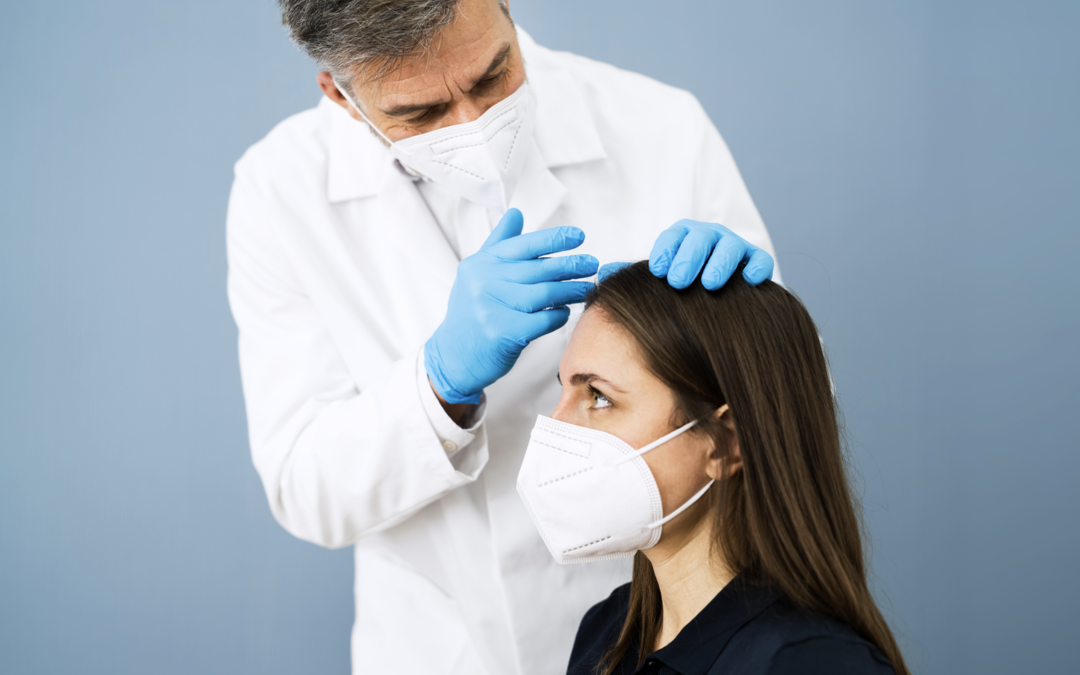In a previous blog post, the GetHairMD™ team discussed the medical and first-hand accounts of post-coronavirus-induced Telogen Effluvium. Telogen Effluvium is a type of reversible hair loss caused by a “shock to the system”—high fever, severe infections, severe chronic illness, heavy inflammation, severe psychological stress, and major surgery or illnesses, to name a few.
With its growing emergence as a “long-haul” COVID-19 symptom, the medical community almost immediately began conducting studies around coronavirus-related hair loss in order to better understand, track, and display its prevalent nature.
Starting only a few months into the pandemic, many medical studies have been published that link COVID-19 infections to incidents of:
- Patterned Hair Loss/Androgenetic Alopecia (hair loss related to genetic causes)
- Diffuse Alopecia (generalized hair loss across the scalp)
- Alopecia Areata (patchy hair loss across the scalp)
- Telogen Effluvium (stress-induced hair loss)
With the individuals being studied ranging from children to seniors, the studies available today help us understand COVID-19-induced hair loss in all sorts of recovery situations. As a continuation of our previous blog post, read on to take a deeper dive into medical studies that work to directly correlate the coronavirus to different types of hair loss.
Patterned Hair Loss (PHL) and Diffuse Alopecia in Hospitalized COVID-19 Patients
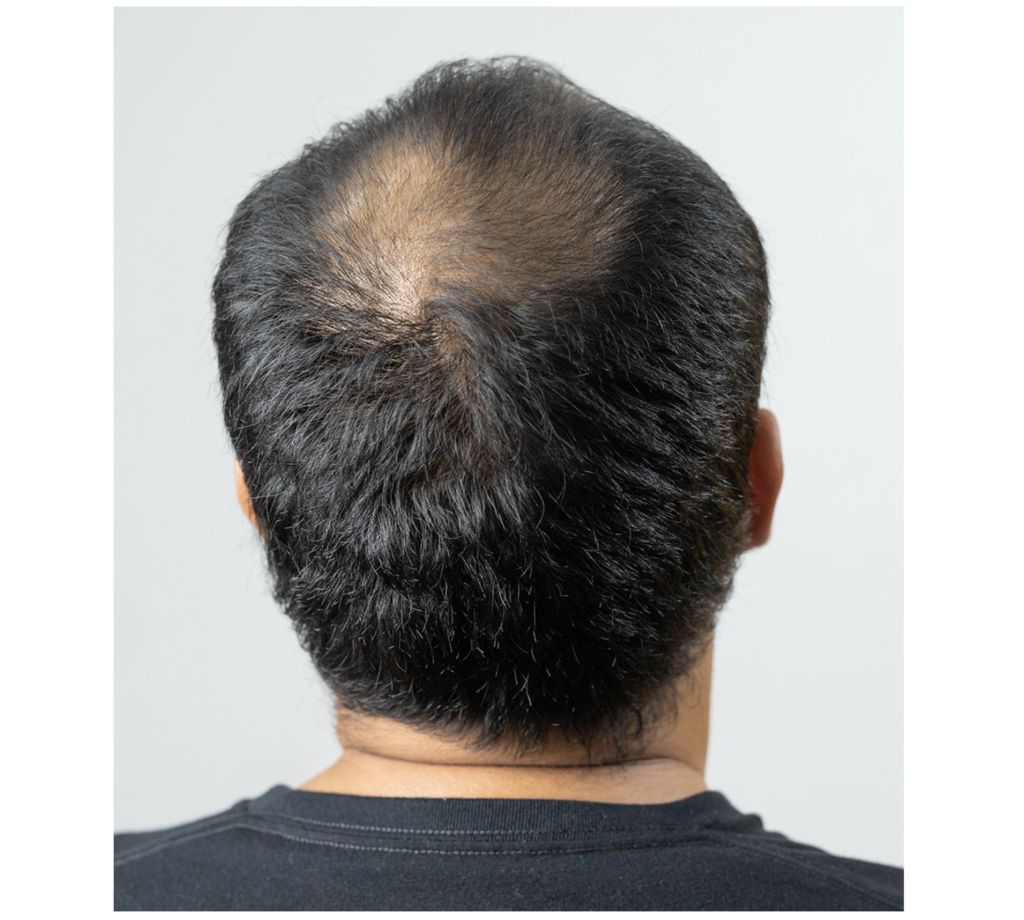
Focusing first on Pattern Hair Loss/Androgenetic Alopecia, clinical studies in Spain showed higher rates and severity of genetic-related hair loss in hospitalized COVID-19 patients compared to age-matched, non-infected people.
The first preliminary study out of Spain was conducted by researchers who gathered information on 41 males (average age 58 years) who were admitted to hospitals in Spain with a diagnosis of COVID-19. According to their findings, 71% were diagnosed with significant hair loss related to genetic causes, of which 39% reported a severe case.
A follow-up study also out of Spain expands on the above initial findings. The study revealed that, out of 175 confirmed COVID-19 patients, 79% of men and 42% of women had significant genetic-related hair loss post infection. Also, those in more severe stages of hair loss often had worse clinical outcomes (use of ventilator, death, etc.).
As for post-COVID-19 Diffuse Alopecia, a study out of Wuhan, China uncovered some polarizing statistics about how common generalized hair loss across the scalp is among hospitalized COVID patients.
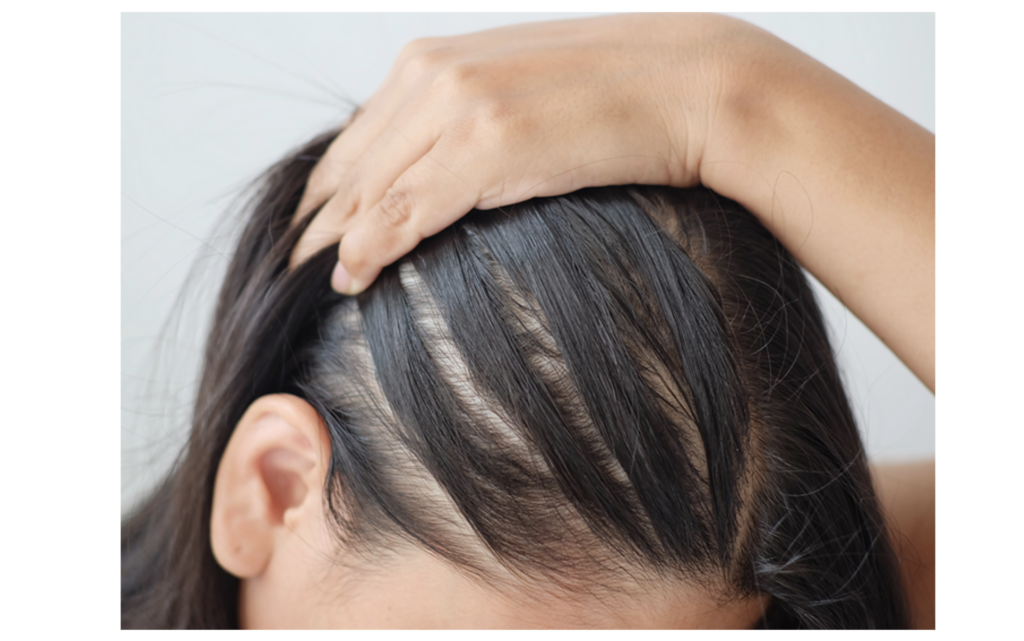
Comparing symptoms of 538 COVID-19 survivors to 184 non-infected individuals, the study uncovered that 3-4 months after being discharged from the hospital, generalized hair loss across the scalp was among the most frequent complaints among the coronavirus patients. Additionally, a majority of the patients’ complaints came from women, with almost half of the female participants experiencing generalized hair loss across the scalp post infection.
In total, in the case of all 538 COVID-19 survivors, 27% of the cases experienced generalized hair loss across the scalp during their hospitalization, and 73% first recognized it after being discharged.
COVID-19 and Telogen Effluvium in Adults
As discussed in our previous blog post, COVID-19 has had a massive impact on the public, reaching far beyond the physical symptoms of the virus itself. For those infected with COVID-19, the prevalence of Telogen Effluvium, hair loss induced by significant physical or psychological stress to the body, also grew.
To support COVID-19-survivor and medical-professional stories, recent studies work to show that COVID-19 directly relates to incidents of stress-induced hair loss. As cited in a systematic review that grouped the data of 19 studies from 10 different countries, stress-induced hair loss on average appeared 67 days post-recovery, with the most common symptoms including decreased hair density/volume, empty hair follicles, and short regrowing hair.
Similar to cases of stress-induced hair loss that are unrelated to COVID-19, 67.5% of those who were diagnosed with post-coronavirus stress-induced hair loss were female. Also, the presence of comorbidities has been shown to increase the risk of developing post-COVID-19 stress-induced hair loss. Finally, multiple studies demonstrated that the more severe the COVID-19 case, the more common the recovery process would be plagued by stress-induced hair loss.
From increased psychological stress and raised hormone levels to heightened inflammation and medications used for treatment, the medical community is still working to nail down exactly what causes post-COVID stress-induced hair loss. Regardless, there is a clear medical basis that stress-induced hair loss is a common result of the coronavirus, adding to increased uncertainty and instability as one recovers from the virus.
COVID-19 and Pediatric-Related Hair Loss
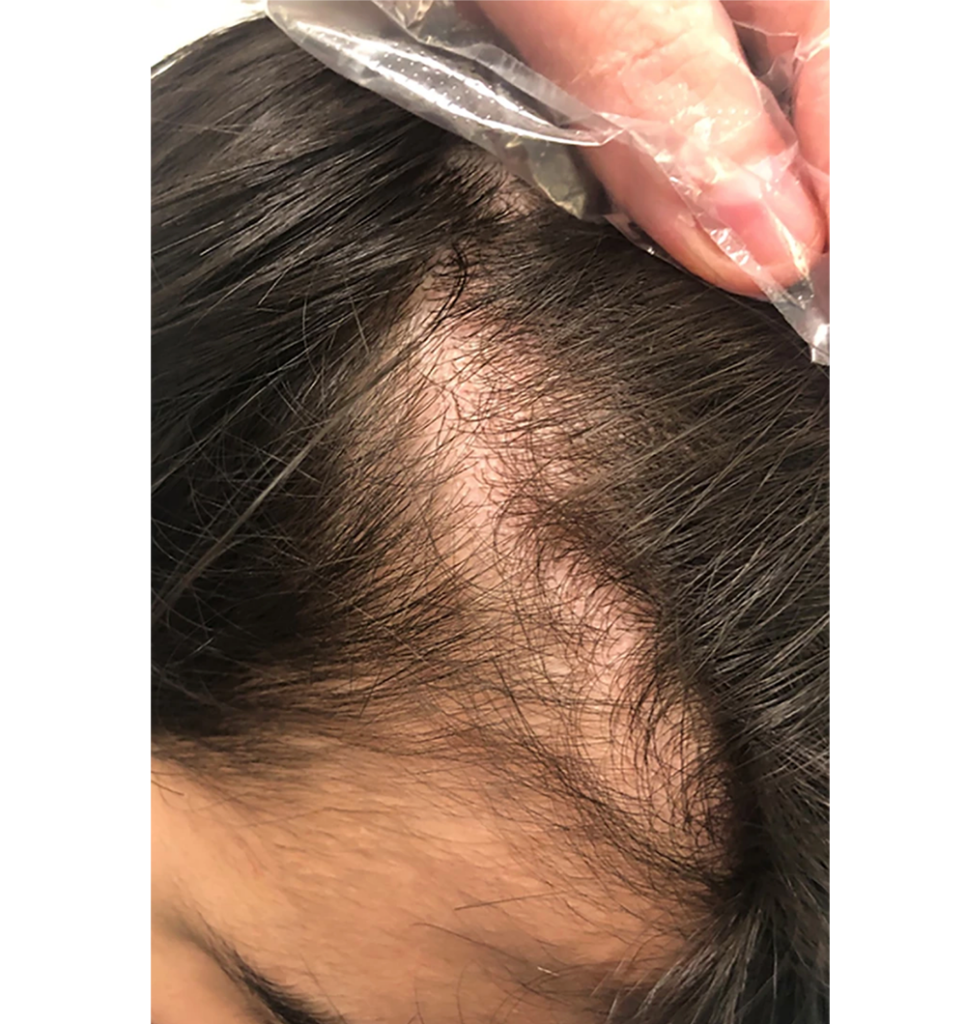
Along with adults experiencing hair loss post-COVID-19, there is data showing that children are also seeing increased/excessive hair shedding and thinning post-COVID-19. In a medical letter published in January 2021, the Alopecia experienced in children post-virus was connected to multisystem inflammatory syndrome (MIS-C). MIS-C is associated with fever, heightened inflammation throughout the body, and skin issues. The findings of two male pediatric patients were presented in the letter.
The first patient, a 10-year-old boy, was referred to a dermatologist for hair loss all across his scalp. The patient ended up being diagnosed with stress-induced hair loss, as further lab work excluded other causes of hair loss. Two months prior to his visit to the dermatologist, he was admitted to the hospital with a high fever and severe cough. The boy tested positive for the virus and was hospitalized. After being hospitalized, he ended up developing COVID-19-associated MIS-C.
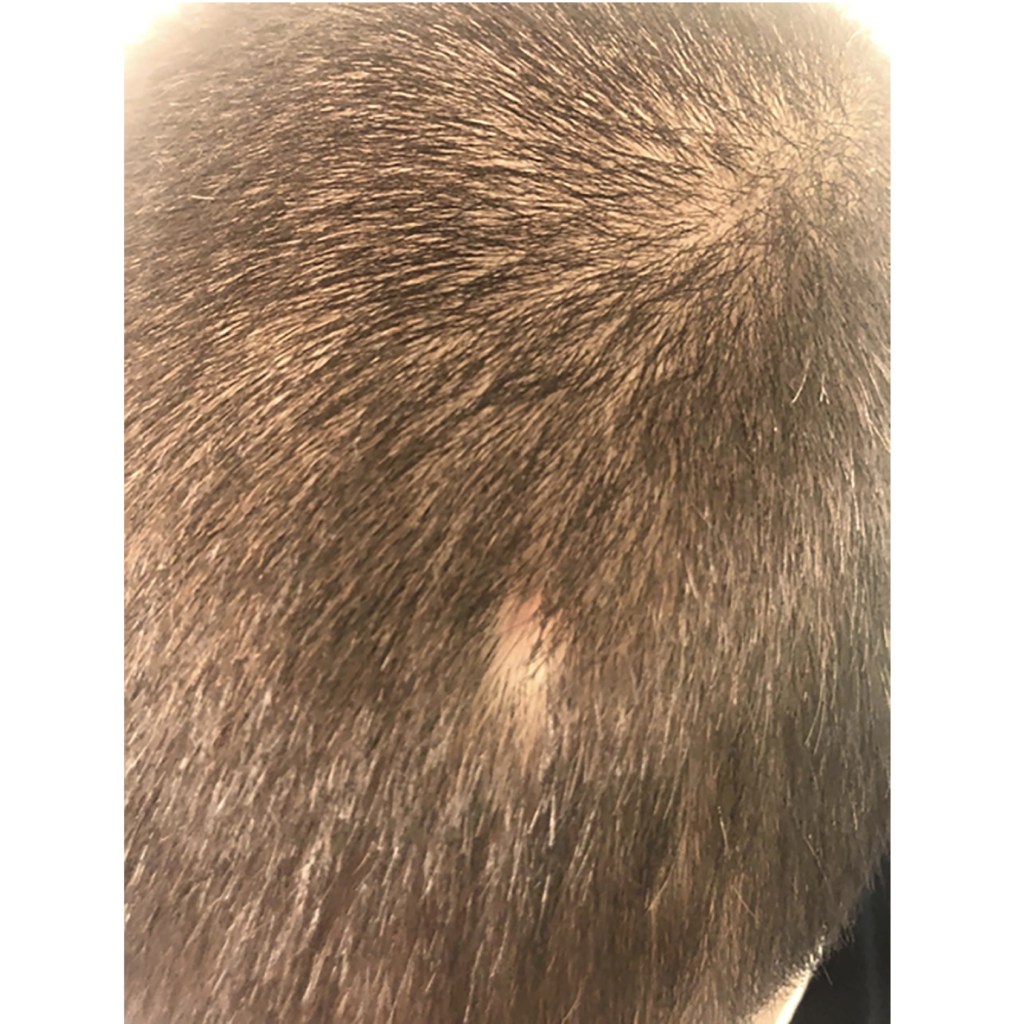
The second patient, a 13-year-old boy, was also referred to a dermatology clinic after developing an Alopecic patch. This patient had no previous history of patchy hair loss or other autoimmune diseases that might cause hair loss. The boy’s family history for patchy hair loss across the scalp was also negative. A month prior, he was diagnosed with COVID-19-associated MIS-C.
Similar to cases of hair loss in adults, incidents of hair loss in children post-COVID aren’t completely understood, but indeed prevalent. While the cases of the two patients outlined above were attributed to inflammatory issues, a growing number of studies and medical literature make it clear that children are not immune to the various causes of hair loss post-infection.
How the GetHairMD™ Clinical Hair Growth Laser is Beneficial for COVID-19 Related Hair Loss
Knowing that hair loss is a confirmed medical concern post-COVID that goes beyond the personal anecdotes, what can one do in order to combat genetic-related hair loss, generalized hair loss across the scalp, patchy hair loss, or stress-induced hair loss that occurs after having the virus?
GetHairMD™’s Clinical Hair Growth Laser treatments have been a great fit for individuals struggling with hair loss post-infection—no matter if the hair loss is sudden, or more gradual. Our modern, non-surgical hair loss solution uses “cool” laser energy to stimulate cell growth and supercharge hair follicles, helping to stop excessive hair shedding and thinning, improve hair volume, appearance, and texture, and regrow lost hair. The treatment is FDA-cleared for both men and women, and reinvigorates your natural hair growth process.
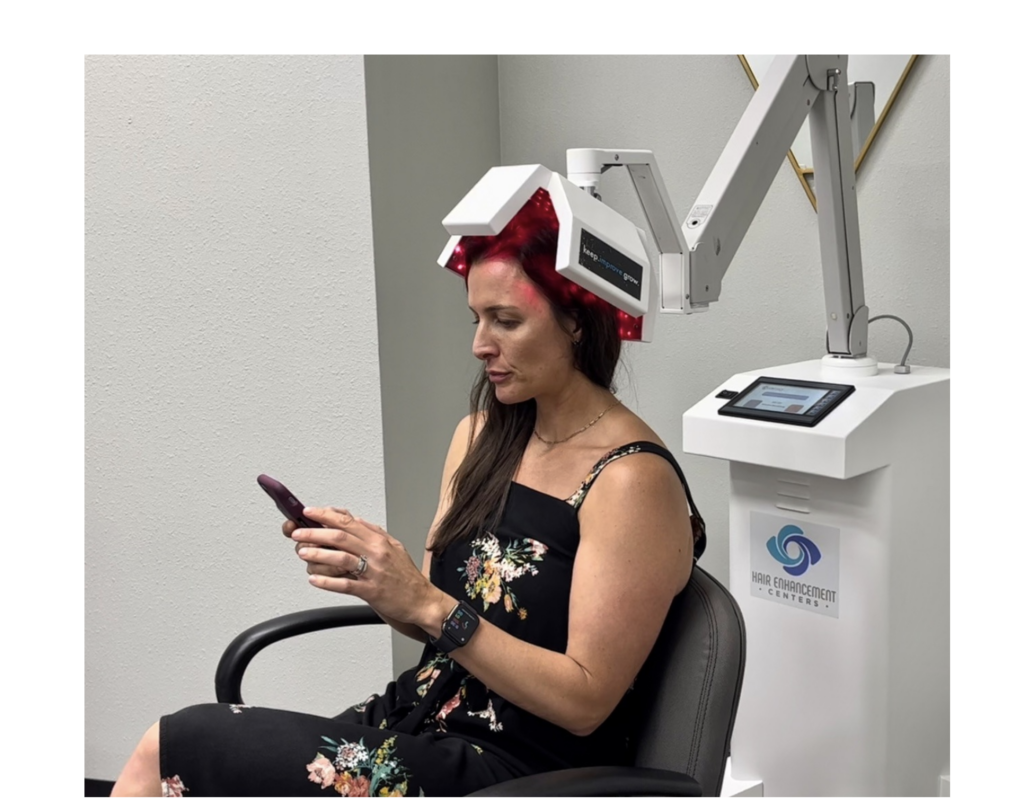
“Three months after having COVID-19 in August, my hair started falling out in clumps—shedding when I took showers, shedding when I brushed my hair, all of that—and it did not stop…I am very fortunate to have found GetHairMD™ because it’s FDA-cleared for men and women and fit exactly what I needed at that time.”
— Skye, Current GetHairMD™ Client
GetHairMD™’s Clinical Hair Growth Laser treatments also pair nicely with the newly-introduced GetHairMD™ Hair Care Trio—a Replenish Shampoo, Restorative Conditioning Treatment, and Rapid Growth Serum. While the laser does most of the heavy lifting when it comes to improving your hair, the new GetHairMD™ products are designed to create a healthy environment for your scalp. The hair care products contain medical-grade formulations that are not available over the counter. Only physicians or other medically-supervised professionals are cleared to administer the products.

